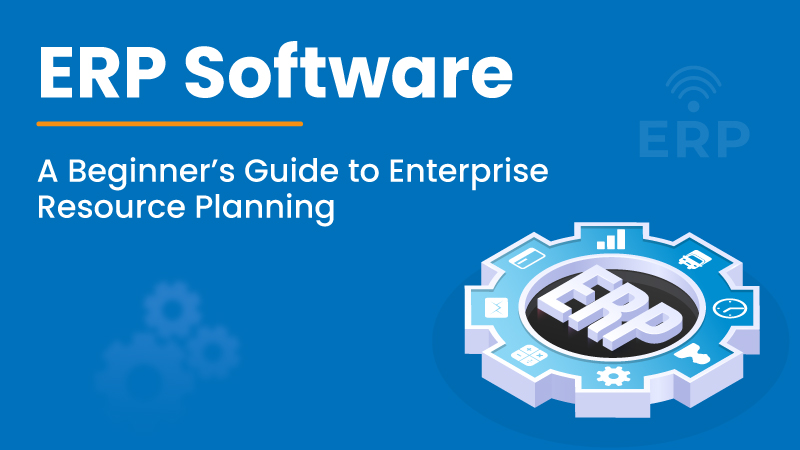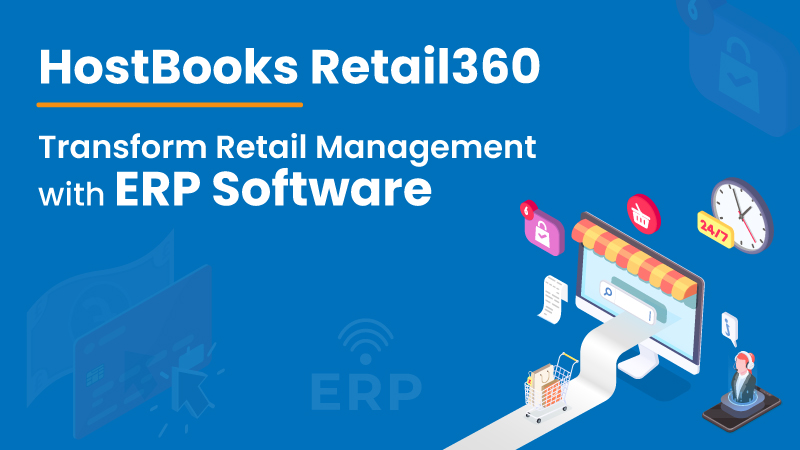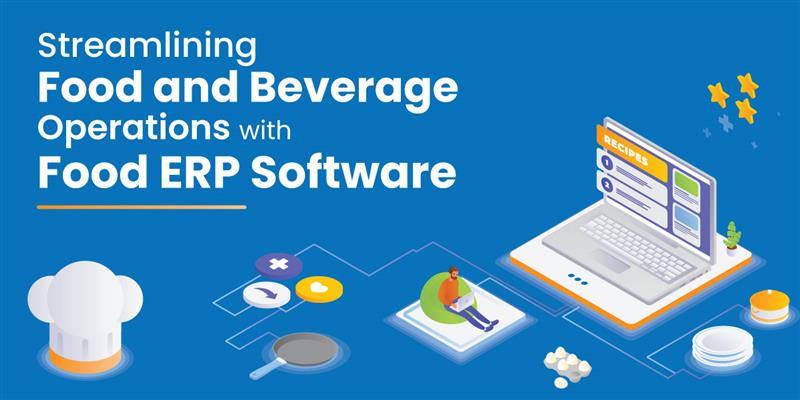Key ERP Trends for 2024 and Beyond: The Role of AI, Sustainability, and Niche Integration
Recent breakthroughs in artificial intelligence and innovative technologies are transforming our internet interactions. Models like ChatGPT, image generation tools such as DALL-E, and language understanding systems like BERT have reshaped digital experiences, influencing enterprise operations, particularly in Enterprise Resource Planning (ERP).
ERPs are rapidly evolving, emphasizing a more comprehensive approach to business management. The shift aims to reduce human intervention, minimize manual efforts, enhance automation, improve accuracy, and facilitate easier decision-making.
Check these trends and technologies.
Advanced Financial Management: Beyond Balance Sheet
Almost all ERP or even accounting software are capable of creative financial reports these days. However, as a greater number of businesses are going global here are some of the ongoing changes in the financial management module of ERPs.
- Parallel Accounting: Parallel accounting could ensure simultaneous adherence to multiple accounting standards, facilitating compliance with local regulations for multinational corporations (MNCs).
- Integration of AI, ML, and DL: Another noteworthy trend is the potential incorporation of Artificial Intelligence (AI), Machine Learning (ML), and Deep Learning (DL) technologies in financial management. If properly developed, this could enhance financial compliance by automating processes and ensuring adherence to standards such as Ind AS, GAAP, IFRS, and GFRS.
- Agile Financial Planning: This would enable organizations to respond swiftly to changes in supply chain dynamics, costs, and workforce variables, ensuring adaptability.
- Advanced Forecasting Capabilities: The trend also emphasizes the potential integration of robust forecasting capabilities with advanced analytics enabling accurate predictions and proactive decision-making.
Cloud Computing: Continued Shift
The momentum of migrating ERP systems to the cloud is set to persist in 2024. ERP software is evolving into true services delivered by cloud providers, offering continuous updates and services that empower users to optimize their solutions consistently.
Subscription-based models will continue to gain prominence, providing businesses with hands-on product expertise, strategic guidance, and configuration support.
AI will play a crucial role in automating processes, allowing employees to focus on strategic tasks. Expect ERP systems to incorporate embedded intelligence features tailored to individual user roles, enhancing user experience and overall productivity. It could also help in predictive maintenance, anomaly detection and
The inclusion of mobile-friendly features, such as advanced GPS tracking and machine learning tools, will become more prevalent. From financial compliance and risk evaluations to structuring data – AI will play a huge role in enterprise Operations.
Read the detailed article on How AI will change the working of ERP.
Sustainability and ESG Integration
Sustainability and Energy Social and Governance (ESG) considerations are undeniably at the forefront of ERP trends. Businesses, compelled by carbon reduction mandates, consumer preferences, and investor scrutiny, are intensifying their focus on sustainability.
Recognizing the urgency, ERP vendors are enhancing features to align with ESG methods, facilitating waste reduction, resource optimization, and the adoption of environmentally friendly processes.
ERP, EAM, and FSM systems are proving indispensable for processing data crucial in setting and measuring sustainability targets. Notable players like the IFS Cloud platform, equipped with industry-specific functionality, are poised to support and catalyze sustainability initiatives.
Supply traceability, advanced analytics, and renewable energy support are becoming intrinsic components of enterprise solutions. ERP systems, functioning as data powerhouses, could enable comprehensive reporting and measurement, allowing businesses to efficiently manage sustainability agendas.
Expanded Operational Scope: Into Industry Niche
We would witness an evolution in niche ERP solutions, breaking down traditional departmental silos. The synergy between ERP and Manufacturing Execution Systems (MES) will facilitate two-way integration for manufacturers.
Industries with customer-facing operations can anticipate ERP systems handling more customer-related processes, and even incorporating AI to do so. Micro-services architecture will continue to enable customization, while integration with popular collaboration tools will enhance user productivity.
ERP systems will further evolve into fully integrated suites, offering specialized capabilities tailored to specific verticals and subvertical industries.
HostBooks is a leading Business solution provider which is already into developing tailored ERP for manufacturing, distribution, retail, food & beverage, and other major industries.
Click here to Talk to a ERP Consultant.
Operability and Digital Services
The increased demand for digital services, accelerated by the pandemic, will persist in 2024. ERP suites will comprise specific components designed to remove organizational silos, providing enhanced capabilities for users. The challenge lies in selecting an ERP system aligned with evolving business needs, as the scope of capabilities continues to expand.
From Software to End-to-End Solution
Previously, ERP solutions used to be multiple software integrated in one. However, the recent trend in ERP is transitioning from traditional integrated software to comprehensive automation solutions.
Unlike standalone software, these solutions leverage automation, data flow, and process optimization for comprehensive business management. This shift represents a strategic move towards a more holistic approach, empowering organizations to achieve higher productivity and adaptability in a dynamic business environment.
All in All
ERP is shifting towards a strategic approach to align with the evolving dynamics of businesses and leveraging the technologies of the future. While it’s still not sure how good these trends would fit when implemented in full-fledged manner.
However, it would be wise to be proactive by adopting trends earlier than to be reactive and adopting the trends forcefully.
FAQ Section
What are the types of ERP?
Enterprise Resource Planning (ERP) systems come in various types, catering to different organizational needs. The primary types of ERP include:
- On-Premises ERP: Traditional ERP systems installed and maintained on-site, requiring a dedicated IT infrastructure.
- Cloud-based ERP: ERP software hosted on cloud servers, offering scalability and accessibility through the internet.
- Open Source ERP: ERP systems with source code accessible to the public, allowing users to modify and customize the software.
What is a two-tier ERP?
Two-tier ERP refers to the strategy of using two separate ERP systems within a single organization. Typically, a larger enterprise employs a comprehensive ERP system at the corporate level (Tier 1) to manage overall operations, while subsidiary or regional branches implement a different ERP system (Tier 2) that meets their specific needs. This approach allows for flexibility and specialization at the subsidiary level while maintaining centralized control at the corporate level.
What are the 5 major steps in the ERP implementation?
ERP implementation is a complex process that involves several key steps. The five major steps are:
- Project Planning: Define goals, scope, timelines, and allocate resources for the implementation.
- System Design: Customize the ERP system to fit the organization's processes and requirements.
- Data Migration: Transfer data from existing systems to the new ERP system, ensuring accuracy and completeness.
- Training and Testing: Train users and conduct thorough testing to identify and address any issues before full deployment.
- Go-Live and Support: Launch the ERP system, provide ongoing support, and continuously monitor and optimize its performance.
4. What is ERP architecture?
ERP architecture refers to the structure and layout of the ERP system, defining how different components interact to support business processes. The key components of ERP architecture include:
- Database Server: Stores and manages the data used by the ERP system.
- Application Server: Hosts and runs the ERP application, managing business logic and workflows.
- Client Interface: Provides a user interface for interacting with the ERP system.
- Business Intelligence (BI) Tools: Enable data analysis and reporting for informed decision-making.
- Middleware: Connects and facilitates communication between different ERP modules and external systems.

Try HostBooks
SuperApp Today
Create a free account to get access and start
creating something amazing right now!

















